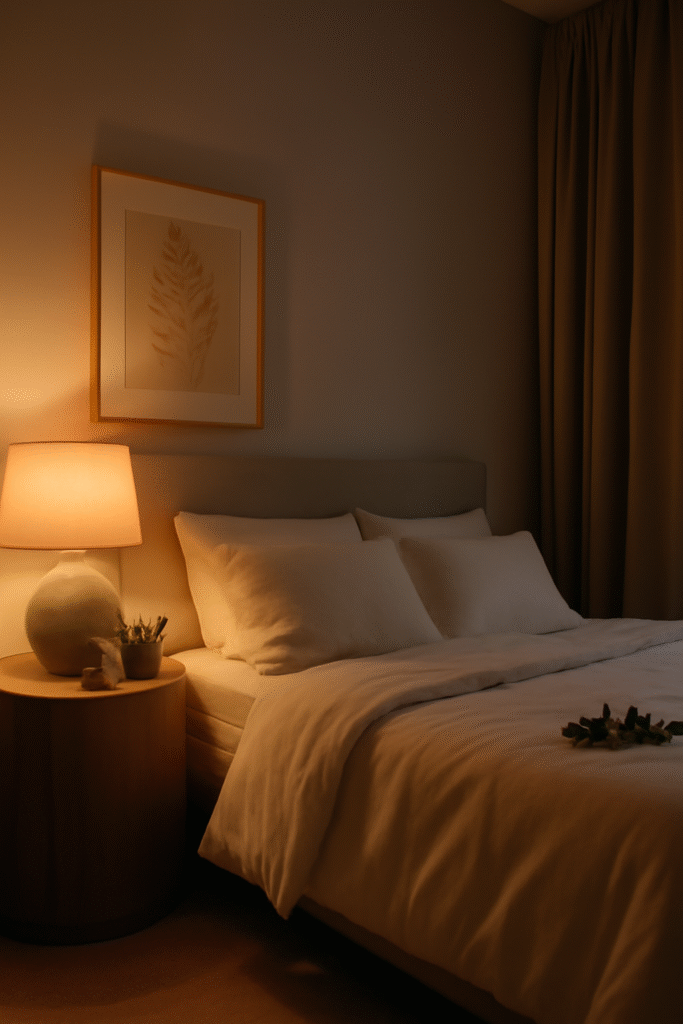Getting a good night’s sleep is essential for overall health, but many people struggle with insomnia or restless nights. While there are pharmaceutical options available, many prefer gentle, natural alternatives to improve sleep quality. Luckily, there are numerous natural sleep remedies proven to help you fall asleep faster, stay asleep longer, and wake up refreshed.
This guide explores nine effective natural remedies supported by science and tradition. Whether you have occasional sleeplessness or chronic issues, these remedies can make a meaningful difference in your sleep hygiene and overall wellbeing.
Why Natural Sleep Remedies Are Worth Trying
Sleep problems affect millions globally and contribute to fatigue, mood disorders, and weakened immunity. While medications can be effective, they often come with side effects and risks of dependency. Natural remedies provide a safer, holistic approach focusing on lifestyle, diet, and environmental factors that support your body’s own sleep mechanisms.
Incorporating natural sleep remedies into your routine can enhance your sleep architecture, regulate circadian rhythms, and reduce anxiety—all critical for restful sleep.
Top Natural Sleep Remedies to Try Tonight
1. Establish a Consistent Sleep Schedule
Going to bed and waking up at the same time daily reinforces your internal clock. This natural rhythm supports falling asleep easily and waking refreshed.
2. Create a Relaxing Bedtime Routine
Engage in calming activities like reading, gentle stretching, or warm baths before sleep. Avoid screens and bright lights which disrupt melatonin production.
3. Use Herbal Teas and Supplements
Herbal remedies like chamomile, valerian root, and lavender have soothing properties that promote relaxation. Melatonin supplements may also help reset sleep cycles but consult a doctor before use.
4. Practice Mindfulness and Meditation
Mindful breathing or meditation reduces racing thoughts and lowers stress hormones, helping your mind transition into sleep mode more smoothly.
5. Optimize Your Sleep Environment
Keep your bedroom cool, dark, and quiet. Use blackout curtains, white noise machines, or earplugs if necessary. Comfortable bedding and minimizing clutter also improve sleep quality.
6. Limit Caffeine and Alcohol Intake
Avoid caffeine at least six hours before bedtime as it stimulates your nervous system. Alcohol may induce sleep but disrupts REM cycles, leading to poor rest.
7. Exercise Regularly but Not Before Bed
Physical activity enhances sleep quality, but vigorous exercise close to bedtime can interfere with falling asleep. Aim to finish workouts 3-4 hours before sleep.
8. Aromatherapy for Sleep
Essential oils like lavender, cedarwood, and bergamot can induce calmness. Use a diffuser or apply diluted oils to pulse points before bed.
9. Natural Light Exposure During Day
Getting sunlight exposure during the day helps regulate your circadian rhythm. This promotes alertness in the daytime and sleepiness at night.
How These Natural Sleep Remedies Work Together
Combining these natural sleep remedies creates a synergy that fosters better rest. For example, a consistent sleep schedule paired with a calming bedtime routine and a darkened bedroom signals your brain to prepare for sleep. Herbal teas and aromatherapy further enhance relaxation, while limiting stimulants and incorporating mindfulness keep stress and alertness at bay.
What Science Says About Natural Sleep Remedies
Research validates many natural remedies. Chamomile contains apigenin, which binds to brain receptors to reduce anxiety. Melatonin supplements mimic the natural hormone your body produces to regulate sleep. Mindfulness meditation has been shown to increase sleep efficiency and reduce insomnia symptoms. Aromatherapy’s impact on sleep has promising preliminary evidence but needs more studies.
Sleep hygiene practices like controlling light exposure and limiting stimulants are foundational recommendations by sleep experts worldwide.
Potential Precautions and When to See a Doctor
Although natural remedies are generally safe, some can interact with medications or cause allergic reactions. Always check with your healthcare provider before starting supplements, especially if you are pregnant, nursing, or have chronic conditions.
If sleep problems persist beyond a few weeks or are accompanied by daytime fatigue, mood changes, or breathing difficulties, consult a sleep specialist for diagnosis and treatment.
Lifestyle Changes to Support Natural Sleep Remedies
Natural sleep remedies are most effective when combined with healthy lifestyle habits such as balanced nutrition, stress management, and avoiding late-night screen use. Prioritizing mental and physical health overall boosts your body’s natural ability to fall and stay asleep.
Final Thoughts on Embracing Natural Sleep Remedies
Natural sleep remedies offer a gentle, sustainable way to improve your sleep and overall wellbeing. By creating a consistent routine, optimizing your environment, and incorporating calming practices, you support your body’s natural rhythms. The journey to better sleep starts with simple steps — try these remedies tonight and enjoy the benefits of restful, rejuvenating sleep.
Frequently Asked Questions About Natural Sleep Remedies
What are the safest natural remedies for sleep?
Herbal teas like chamomile and lavender, mindfulness meditation, and good sleep hygiene are safe and effective for most people.
How long does it take for natural sleep remedies to work?
Some remedies, like adjusting sleep schedule, may take a week or more, while herbal teas or aromatherapy can have immediate calming effects.
Can I use melatonin every night?
Melatonin is generally safe for short-term use; consult your doctor for long-term use.
Are there any side effects of herbal sleep aids?
Possible side effects include allergies or interactions with medications. Always use under guidance if you have health concerns.
Does exercise improve sleep quality?
Yes, regular moderate exercise improves sleep but avoid vigorous activity close to bedtime.
What if natural remedies don’t work for me?
Persistent sleep issues may require medical evaluation to rule out disorders like sleep apnea or chronic insomnia.


